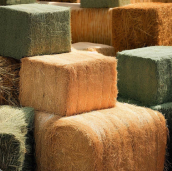Description
There was a time when the confectionary known as a marshmallow truly did contain its namesake herb. These days, however, commercially produced marshmallows don’t contain a trace of the gentle healer Althaea officinalis.
Animals, though, can still treat themselves to marshmallow if it is growing in their pastures. They will readily feed on it if it is available, but it does require quite moist growing conditions – hence the “marsh” in marshmallow!
Both the leaves and roots of marshmallow have been consumed as vegetables by humans, and the leaves can be brewed as a tea (infusion).
Marshmallow has long been considered one of the most benevolent of herbs, renowned for its soothing and softening actions. Its therapeutic effects are largely due to its significant mucilage and pectin content, aided by its antibacterial and anti-inflammatory properties. Pectin is a soluble fibre that is beneficial for intestinal function and for keeping blood sugar levels in order. Mucilages are compounds which, when combined with water, form a slippery, slimy, semi-solid texture which has soothing and protective properties for surfaces such as the lining of the digestive tract or the skin. In addition, mucilages have the ability to bind toxins and wastes to themselves and thereby aid in their removal from the body.
While both the root and leaf of marshmallow contain mucilage, the root contains a higher proportion of it. The powdered root, mixed with water, can be used as a poultice for skin inflammations, rashes, bruises, abrasions, wounds and ulcers, sometimes on its own or in conjunction with other poulticing agents or herbs such as slippery elm. An infusion of marshmallow leaf may be used as a soothing wash for inflamed skin.
Taken internally, marshmallow is healing and protective for damaged, inflamed gut walls, and is thus used for treating conditions such as ulcers, colitis and enteritis. Horses who have colicked, or who are scouring, can benefit from the soothing and healing effects of marshmallow for a number of weeks afterward (usually in conjunction with other herbs, including chamomile).
Hardworking horses, or those prone to colic (especially in association with ulcers), may benefit from regular inclusion of marshmallow in their feed. But although long-term use of marshmallow as a gut protector is safe, it is important not to use marshmallow merely as a suppressive/management tool that disguises a chronic problem. The source of any ongoing issues such as ulcers must be properly addressed.
Marshmallow is not only used to treat digestive tract disorders; it can also be used to soothe inflamed and irritated mucous membranes of the respiratory and urinary systems. Dry coughs, sore throats, urinary tract inflammation and cystitis have all been relieved by the effects of marshmallow. Horses who are bleeders (i.e. who have experienced epistaxis) may benefit from marshmallow’s ability to protect their airways from the allergens and irritants that can lead to inflammation.
The antitussive (cough-relieving) effects of marshmallow have been proven in clinical study, and the traditional use of marshmallow preparations to treat irritated mucous membranes and regenerate tissue has also been supported by studies which show it is able to stimulate the viability and proliferation of epithelial cells (cells on the surface of mucous membranes and skin).
ACTIONS: demulcent, emollient, vulnerary.







